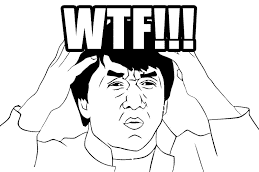Why Rice Tariffication is an Evil Policy
Table of Contents
The Rice Tariffication Law is the single biggest mistake of the Philippine Development Plan 2017-2022 called Ambisyon Natin during the Duterte Administration.
It began with the rice crisis of September 2018 as the rapid increase in the prices of rice. But this was a natural consequence of the increased taxes from the TRAIN tax reform which was supported by NEDA itself.

Instead of strengthening NFA* to deal with the crisis, the Senate and Lower House actually destroyed it through the Rice Tariffication Law (RTL) in order to allow rice importation.

Maharlikanism Note
The Masterminds of RTL were familiar names:
- Cynthia Villar
- Grace Poe
- Joel Villanueva
- Jose Panganiban
- Kiko Pangilinan
- Leila de Lima
- Ralph Recto
- Risa Hontiveros
- Sharon Garin
- Win Gatchalian
- Gloria Macapagal-Arroyo

The lawmakers thought, that by removing quotas and imposing a tiny 35% tariff that went to local farmers, local rice production would increase as to reduce the price of rice.
In reality, the warehouses didn’t bother buying from scattered local producers* and instead bought in bulk from a single importer, gaining from economies of scale. Without buyers for local rice, the local farmers had a glut of unsold rice. This is similar to local carrots not finding a market because the market was already occupied by Chinese carrots which could be bought by warehouses easily in bulk.
Maharlikanism Note
Didn’t the lawmakers know that the secret to rice and agricultural self-sufficiency is for the government to control all parts of the chain from production, transportation, milling, warehousing, wholesaling, and even exporting?
Didn’t they know that this is what Vietnam does with state-owned Vinafood which allows them to export rice cheaply to the world?
Didn’t they know that Marcos replicated this with the NFA (milling), Food Terminal Inc as FTI (storage), and Kadiwa stores (retail) which allowed the country to export rice in the past?
The Problem with Neoliberal Keynesianism
These problems are really rooted in the flawed assumptions of Keynesianism which spread after the 2008 Financial Crisis. Because of the doctrine of profit maximization, the burden of driving growth fell to the government which had to build huge projects, get debt, then raise taxes to pay for that debt.
In the case of Dutertenomics, TRAIN and food importation (Rice Tarrification) was used to pay for Build Build Build. It oppresses consumers and farmers to support the construction industry. It is not a growth that is inclusive nor balanced.
Our social cycles model predicts that the pandemic will last a long time, yet NEDA and lawmakers are still acting like the old normal. They have not scrapped their old neoliberal ways and still think that market forces will somehow relieve the people of their suffering.
Market forces cannot solve the current economic problems of the Philippines because such forces are based on selfish-interest, while the alleviation of the suffering of others is a selfless-interest. A person, policy, or system cannot be selfish and selfless at the same time!
Pharmally was able to buy Lamborghinis simply because it used the market forces of supply, demand, and financing to its private advantage, at the expense of a huge public debt which has to be paid by future generations.
In fact, the pandemic has proven that nationalized basics* via semi-state-owned corporations are the way of the future, as proven by China and Singapore**.
Maharlikanism Note
Maharlikanism Note
Only the close coordination of various essential services can create a society strong enough to weather the shocks from global warming caused by the selfish behavior of market forces. This close coordination can only be done by the government which is supposed to have the public interest.
Government management of mercantile projects like this requires orderly, vigilant, and parsimonious administration, like those in Venice and Amsterdam..The post office is properly a mercantile project. Its capital is not very big. There is no mystery in the business. The returns are certain and immediate.
Adam-Smith
The Wealth of Nations, Book 5
Our next post will explain how to implement this solution and overhaul Ambisyon 2040 into Maharlika 2050.
Why did Duterte not veto this bill? Could it be because it was actually supported by his own NEDA which is infested with neoliberals?
Why didn’t he just use his military to arrest the smugglers and cartels citing economic sabotage?
Could it be because he was ignorant of food policy in the same way that he was ignorant about Covid response and so he had to rely on ‘health experts’ such as the IATF which had flip-flopping policies*?